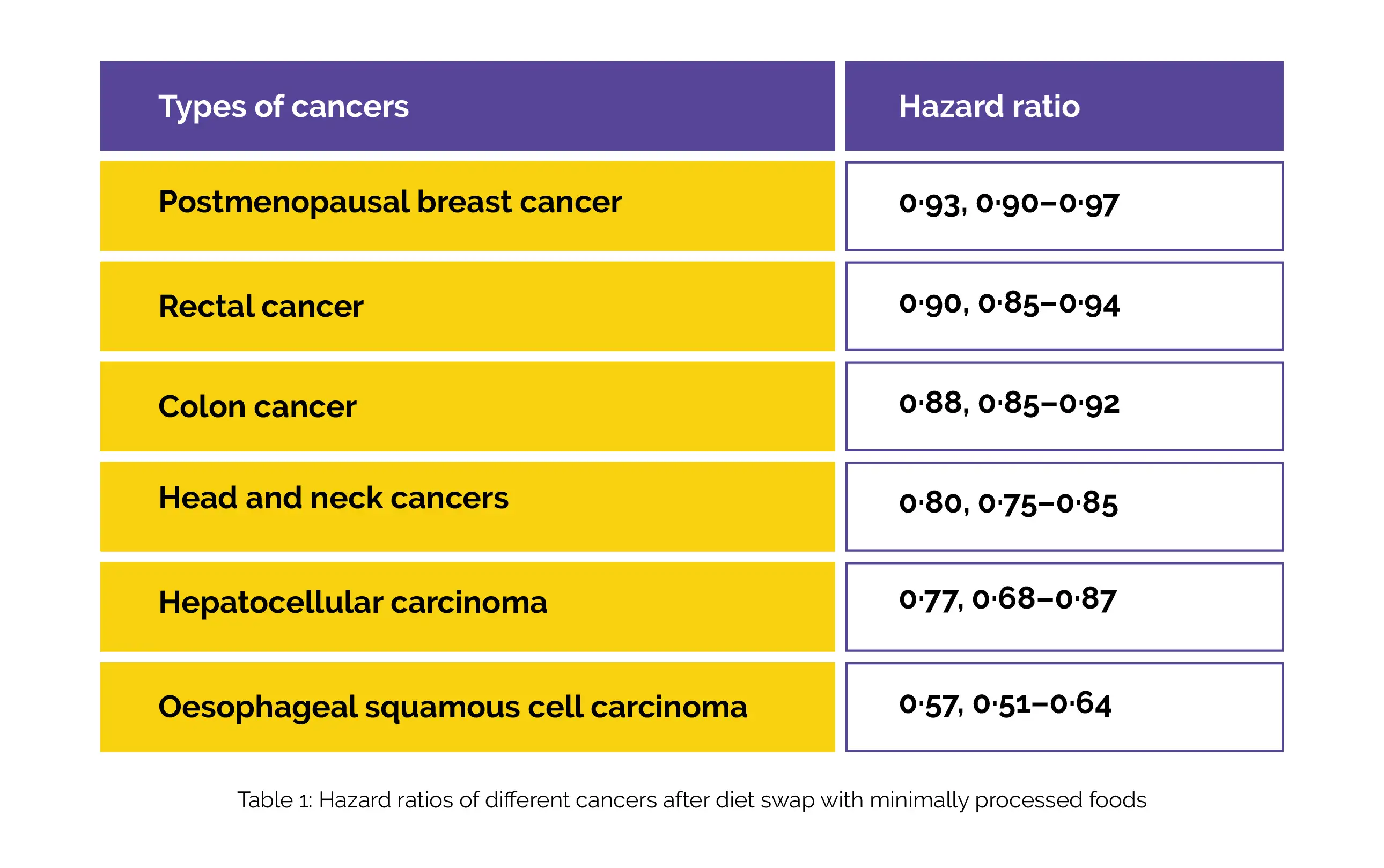Categories
Change Password!
Reset Password!


Intake of negligibly processed foods but not processed and ultra-processed food products (such as chips, frozen pizza, processed meats, cakes, fast food, etc.) can prevent cancer.
Outcomes from the prospective European Prospective Investigation into Cancer and Nutrition (EPIC) analysis recommended that the intake of processed and ultra-processed food products substituted with equivalent portions of minimally processed foods can reduce cancer risk.
Cancer has been assumed to be linked to highly processed foods. This study by Nathalie Kliemann and colleagues explored the link between dietary intake as per the amount of food processing and the possibility of cancer at 25 anatomical sites based on the data from the EPIC study.
Eligibility of the people was done on the basis of geographic or administrative perimeters. Exclusion criteria were based on if a person has been diagnosed with cancer prior to the enrollment in the study, had no information for the NOVA food processing category, or if the people were in the top and bottom 1% for the ratio of total energy. The food and drink intake was noted using a dietary questionnaire. Cancer registries or follow-up from different sources, comprising of cancer and pathology centres, medical insurance histories, helped recognize the cancer patients.
A substitution analysis to assess the effect of replacing processed foods and ultra-processed foods with minimally processed foods on cancer risk using Cox proportional hazard models was done. The prevalence of cancers at twenty-five anatomical sites was considered. This large cohort study comprised of whopping 521324 people of which 450111 were included in this analysis (318686 [70·8%] were women and 131 425 [29·2%] were men). Switching 10 percent of processed foods with an equal amount of minimally processed foods was linked with a lower risk of cancer, Table 1:

A lower probability of colon cancer, head and neck cancers, and hepatocellular carcinoma was observed with the replacement of 10 percent of ultra-processed diets with 10 percent of minimally processed diets. A significant relationship was observed even if the models were attuned to body mass index (BMI), alcohol consumption, dietary intake and quality.
The Lancet
Food processing and cancer risk in Europe: results from the prospective EPIC cohort study
Nathalie Kliemann et al.
Comments (0)